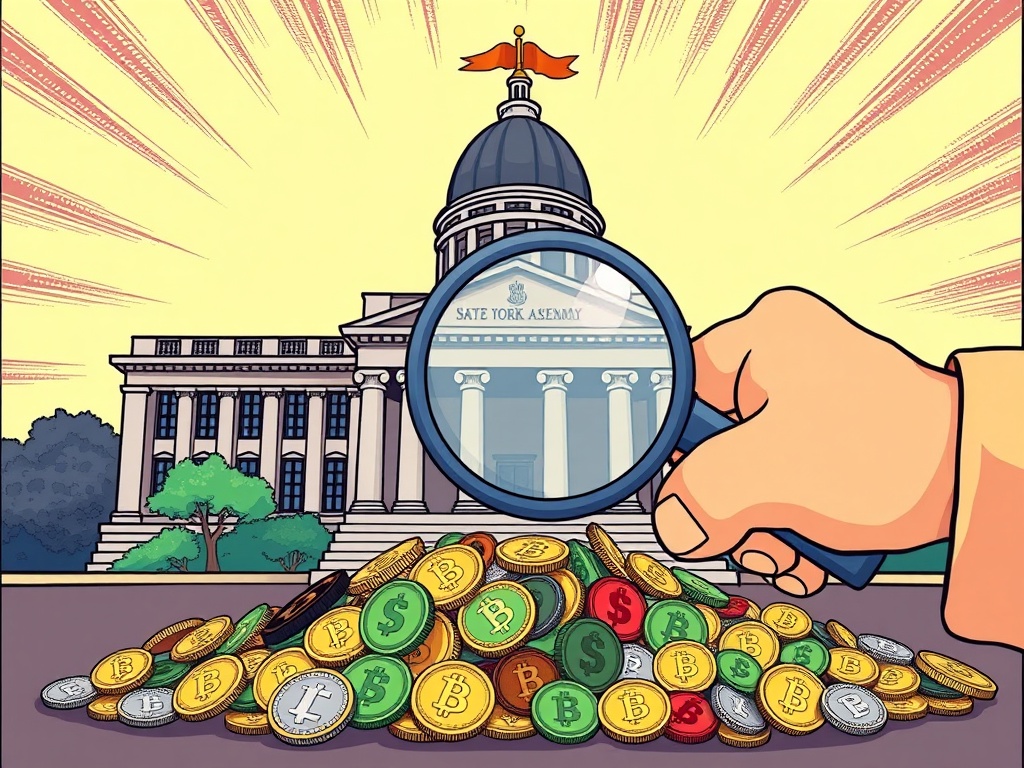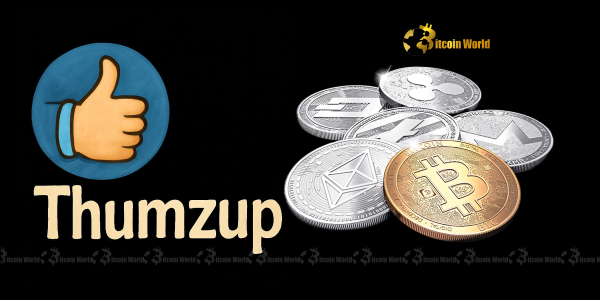BitcoinWorld

Urgent: New York Targets Crypto Sales with New Tax Bill
A significant development is brewing in the Empire State that could reshape the landscape for cryptocurrency enthusiasts and investors. A prominent New York Democrat has put forth a proposal aiming to introduce a new crypto tax New York, specifically targeting digital asset sales and transfers. This move signals a growing interest from lawmakers in regulating and taxing the burgeoning digital economy.
What is This New York Crypto Tax Proposal?
Assemblyman Phil Steck, a Democratic member of the New York State Assembly, is the driving force behind this legislative effort. He has officially proposed a bill, known as Assembly Bill 8966, which seeks to impose an excise tax on the sale and transfer of various digital assets, including non-fungible tokens (NFTs).
- The core provision of this bill is a 0.2% excise tax.
- This tax would apply to both the sale and transfer of crypto assets.
- The objective appears to be generating revenue from the rapidly expanding digital asset market.
This initiative highlights the ongoing debate around how traditional tax frameworks should adapt to the unique nature of cryptocurrencies and blockchain technology.
How Could This Digital Asset Taxation Impact You?
If Assembly Bill 8966 were to pass, it would introduce a new layer of financial consideration for anyone engaging in crypto transactions within New York. A 0.2% excise tax might seem small, but it could accumulate, especially for frequent traders or large-volume transactions.
Consider these potential impacts:
- Increased Transaction Costs: Every sale or transfer of a digital asset would incur this additional fee.
- Reporting Complexity: New tax obligations often lead to more complex record-keeping and reporting requirements for individuals and businesses.
- Market Behavior: Such a tax could influence how often New York residents trade crypto or even encourage some to move their activities elsewhere.
The concept of digital asset taxation is not new globally, but its implementation varies widely. New York’s approach could set a precedent for other states.
What’s Next for This Crypto Sales Tax Bill?
The journey for Assembly Bill 8966 from proposal to law involves several crucial steps. It is not a done deal yet, and the legislative process allows for public input and debate.
Here’s the typical path a bill like this must follow:
- Committee Review: The bill must first clear an Assembly committee. This is where it will be debated, potentially amended, and voted upon by committee members.
- Full Assembly Vote: If it passes the committee, it then moves to a vote before the full New York State Assembly. A majority vote is required here.
- Governor’s Signature: Finally, for the bill to become law, it needs to secure the governor’s signature. The governor can sign it into law, veto it, or allow it to become law without a signature.
This process means there are still opportunities for various stakeholders, including the crypto community, to voice their opinions on the proposed crypto sales tax. The outcome will be closely watched by the broader cryptocurrency industry.
In summary, Assembly Bill 8966 represents a significant legislative effort to bring digital assets under the state’s tax umbrella. While the proposed 0.2% excise tax is relatively low, its implications for crypto users in New York are notable. The bill’s progression through the Assembly committee, a full Assembly vote, and ultimately the governor’s desk will determine its future and set a precedent for digital asset taxation within the state.
Frequently Asked Questions (FAQs)
What is Assembly Bill 8966?
Assembly Bill 8966 is a proposed New York State bill that aims to impose a 0.2% excise tax on the sale and transfer of digital assets and NFTs.
Who proposed this New York crypto tax?
The bill was proposed by Phil Steck, a Democratic member of the New York State Assembly.
What is the proposed tax rate for crypto sales?
The bill proposes a 0.2% excise tax on the sale and transfer of digital assets.
Will this crypto sales tax affect all New York residents?
If passed, the tax would apply to individuals and entities engaging in the sale and transfer of digital assets within New York State.
What steps must Assembly Bill 8966 complete to become law?
The bill must clear an Assembly committee, pass a vote in the full Assembly, and finally receive the governor’s signature to become law.
How does this bill relate to digital asset taxation trends?
This bill reflects a growing trend among governments worldwide to regulate and tax digital assets, integrating them into existing financial frameworks.
If you found this article insightful, please consider sharing it with your network on social media. Your shares help us spread crucial information about cryptocurrency regulations and market developments.
To learn more about the latest crypto market trends, explore our article on key developments shaping digital asset institutional adoption.
This post Urgent: New York Targets Crypto Sales with New Tax Bill first appeared on BitcoinWorld and is written by Editorial Team





